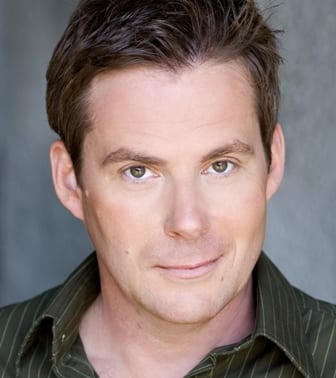Filmmaker/Teacher Cameron Watson
Q: Did you have a business plan when you started your business?
CW: I started in the business as an actor and then later segued into writing/directing and producing. As an actor, starting out, I did not have an official business plan, but I did have a “plan of action,” based on what I knew about how the business for actors was running at the time. I knew the basics of where I needed to relocate to (NYC) and that I needed tools (headshots, resumes, training, demo reels, workshops, etc). I knew that I needed to secure my Equity card. I needed to get an agent with the tools mentioned above. I needed to make connections with casting offices and network as much as possible. But, most importantly, I needed to be good, damn good. I needed to have my product: me and my talent and craft, in the best shape possible, so that when it all started to come together, I would be prepared and ready for it.
Q: Do you think business plans are necessary for entrepreneurship?
CW: “Starting film projects and web series absolutely involve a business plan and a business model. When I formed my company (LLC) to produce and make my first feature (OUR VERY OWN), we studied other films similar to ours to build a plan in order to attract investors. We met with other filmmakers and looked at their models for how they raised money and what they expected to sell the movie for, etc. We studied who our film would appeal to and what audience would be attracted to the story. The main thing to remember about a business plan for a film or a web series is that there is really no ‘right way to do it’ because art is so subjective. You never know what is going to fly. I think business plans are important for entrepreneurs, indeed. I do think that they are not as black and white as, say, a business plan for an attorney or a moneyman or someone opening a retail store for the reasons I mentioned above.
Q: What three pieces of advice can you offer developing arts entrepreneurs?
CW:
- “Be passionate about it. Very, very passionate about it. If you want something badly enough, because you care deeply about it, you will find a way to get it.”
- “Never take, “no” for an answer. The arts world if full of, “no.” People will constantly tell you they don’t want you or what you offer. You are not right for the part or we don’t want your script or we don’t want to buy your TV show and on and on. “Next” should be your favorite and most used word!”
- “Love what you do. With all of your heart. Care that what you do is valuable and that it deserves respect and attention. Fall in love with what you do.”
Interview #2: Filmmaker Francis Abbey
Q: Did you have a business plan when you started your business? 
FA: “I put together a business plan for my second feature film, detailing the project and the people involved. While not entirely the same, I have also done two successful Kickstarter campaigns that brought in a total of $52,000. Creating a good crowd-funding campaign is like writing a highlight version of a business plan.”
Q: Do you think business plans are necessary for entrepreneurship?
FA: “I think business plans are essential for entrepreneurship if one is seeking investment. Investors want to know that an entrepreneur has done his or her homework and is going into the endeavor well prepared. Investors also want to see that they’ll get a return on the money they put into the entrepreneur’s business. On the other hand, if an entrepreneur is self-financing, a business plan may not be necessary but still probably a good idea.”
Q: What three pieces of advice can you offer developing arts entrepreneurs?
FA:
- “Know your limitations. If you’re not a business-minded individual, seek a partner who is.”
- “Don’t invest too much of your own money. This is particularly true in filmmaking, since it’s such and expensive art form. Don’t go mortgaging your home, because it’s just not worth it. Find other ways to get the money.”
- “Be resourceful. Find ways to solve problems without spending money. Finding money for the arts will always be a challenge, so the people who can think outside of the box will have the longest careers.”
Interview #3: Director/Playwright/ Actor Matt Lyle 
Q: Did you have a business plan when you started your business?
ML: “We didn’t. We were fresh out of college and really only knew how to put on plays. We had no real idea about how to run a business and it certainly showed. Our only real plans were to make the art we wanted to make and only spend the money we thought we could make back. That kept us small and agile but, if we’d wanted to grow into an institution, it would have taken so much more coordination.”
Q: Do you think business plans are necessary for entrepreneurship?
ML: “Absolutely, especially if you have any plans for growth.”
Q: What three pieces of advice can you offer developing arts entrepreneurs?
ML:
- “Business classes are your friend and learning how to write a grant is worth a million bucks. Maybe literally.”
- “If your business is a non-profit, put people on the board that can mentor you through the early growing pains of marrying business and art.”
- “Do the work you’re passionate about and try to surround yourself with people that are just as passionate about it.”
Interview Analysis by Gus Rives
As a student aiming to be a part of the field that all three of these interviewees work in, the interviews supplied me with a large amount of useful tips and intriguing anecdotes that will surely help me find where to start from once I graduate (before then, really). I particularly enjoyed each of their three tips to give to up and coming entrepreneurs as they each had interesting insight to give, some of which I hadn’t even considered before.
My interview with Cameron Watson was probably the most insightful as he went into great detail on each of the questions. It is also always reassuring to hear that people who have had success in such a crowded and competitive industry say that they had no real plan going in and how they eventually found their footing. After getting started he knew exactly what he needed in order to achieve his goals. It’s important to be aware of, and secure anything that could help you in, this competitive industry. So, I will research what I may need in order to do what I want to do with my life. He and his team often research other works similar to what they’re creating to get a better idea of what they need and should do, which I think is an efficient way to really recognize what is necessary for your project to come into fruition. Even on my small, budget-less film class assignments I always find myself uncertain about what all I need to carry out my idea so analyzing others’ works similar to what I’m going for, I’m sure will prove useful. His tips are more uplifting than anything, which in and of itself is encouraging, for an amateur film student.
The second interview, with Francis Abbey, I found particularly useful for the financial side of things. He gives caution to using too much of your own money on projects and stresses that finding other avenues to collect funding is a more sensible approach, financially speaking. Crowdfunding seems to be one of the more recent and favorable methods to obtain money for film projects. My biggest take-away from this interview is his overall advice of being cautious: know your limitations and rationally try to solve problems without just throwing money at it.
The final interview with Matt Lyle was unfortunately a bit last minute and I didn’t get to go too in depth with him on the questions, but he did offer a good perception on how to handle the early stages of starting a business. It’s a wise decision to find people who are passionate about the same thing you are and who can help you through the inevitable difficulties that will be encountered along the way.
This assignment pushed me to get in contact with real people in the industry that have found success – something I didn’t think I could do as just a college student. It has shown me just how easy and valuable networking can be. Just from these 3 short interviews I’ve learned a lot of useful and applicable knowledge that I will certainly utilize many times in the near future.
Gus Rives is a student at Southern Methodist University,




